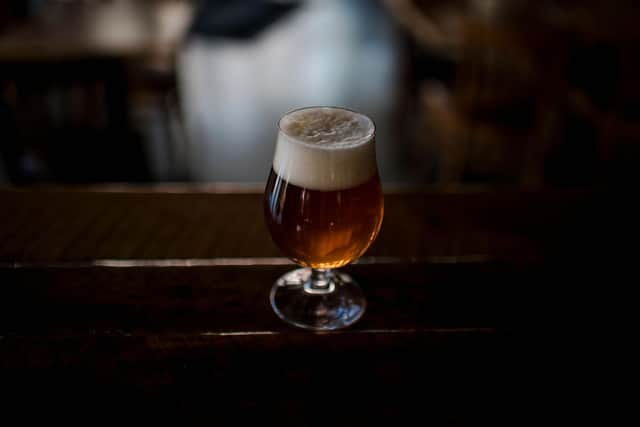Scotland’s craft brewers can use pandemic lessons to manage cost-of-living crisis
Experts from Dundee’s School of Business and Edinburgh Napier University have carried out extensive research into the experience of independent breweries during Covid-19 when they were hit by the sudden closure of pubs and restaurants.
Almost two-thirds of small independent brewers ceased brewing completely in 2020 while 31 per cent slowed production and only 1 per cent reported an increase in brewing. Smaller operators were also often unable to access meaningful government support due to factors such as tax status and low profit levels.
Advertisement
Hide AdAdvertisement
Hide AdHowever, the research also found that the pandemic created new opportunities for some brewers, including supplying customers directly through home deliveries. One company told the researchers online sales grew from £500 a month to £15,000 in the first week of lockdown.


Dr Daniel Clarke, from Dundee’s School of Business, said strengthening connections with the local community was the biggest opportunity identified during the study.
“The picture that has emerged is one in which craft brewers raced to repurpose and innovate, turning physical spaces within the brewery into opportunities to generate alternative revenue streams,” he said.
“They have also sought to find new ways to use their customers’ spaces as marketing spaces and to change their own approaches to decision-making.”
Brewers also collaborated with each other and with other local businesses to bring down the cost of production and distribution.
“Whilst brewers were designing new taprooms and brewery layouts, creating online shops and devising new distribution channels, consumers were not only being physically moved to transact online but also being emotionally moved to reassess their spending habits in favour of new local products that resonate with their own values,” he also said.
Dr Clarke said it remains to be seen whether these consumer habits will hold up as the cost-of-living crisis bites and disposable income shrinks.
Resilient
“What is clear, however, is that craft brewers possess incredible resilience. Having faced down one existential threat, they can use the lessons learned from Covid to survive this latest challenge,” he said.
Advertisement
Hide AdAdvertisement
Hide AdDr Holly Patrick, from Edinburgh Napier University who also worked on the project together with colleagues from the University of Huddersfield, said “necessity has been the mother of invention” for many of the brewers the researchers consulted.
“As brewers become more embedded in their communities, the localism of the product and the economic benefit of small brewers to their communities will increase. There is reason to hope that this might inspire a further growth in US-style beer tourism, we are likely to hear more of what is now being dubbed the ‘beercation’.”
The British Beer & Pub Association reported that pub beer sales plunged by 40 per cent in March 2019 compared to a year earlier. By May 2020, 70 million pints of spoilt British beer had to be poured down the drain after pubs were forced to close due to Covid-19 restrictions.
A message from the Editor:Thank you for reading this article. We’re more reliant on your support than ever as the shift in consumer habits brought about by coronavirus impacts our advertisers. If you haven’t already, please consider supporting our trusted, fact-checked journalism by taking out a digital subscription: www.scotsman.com/subscriptions
Comments
Want to join the conversation? Please or to comment on this article.
